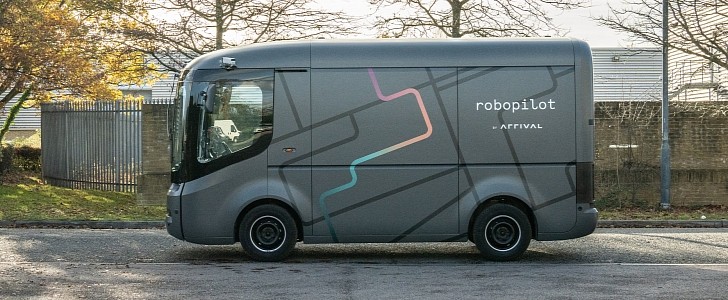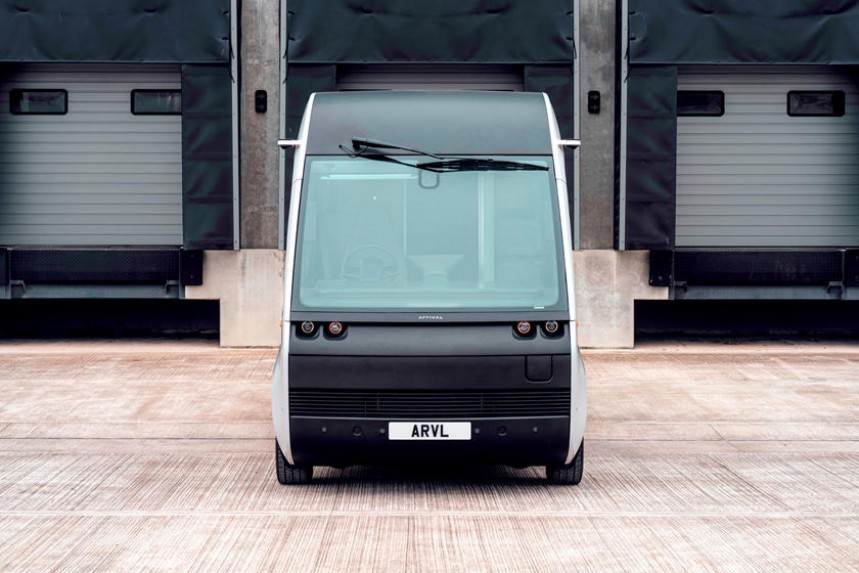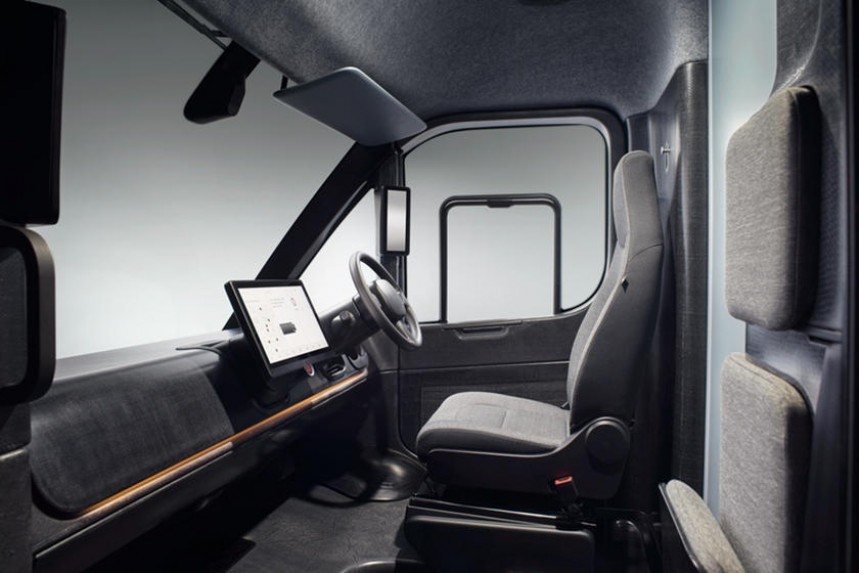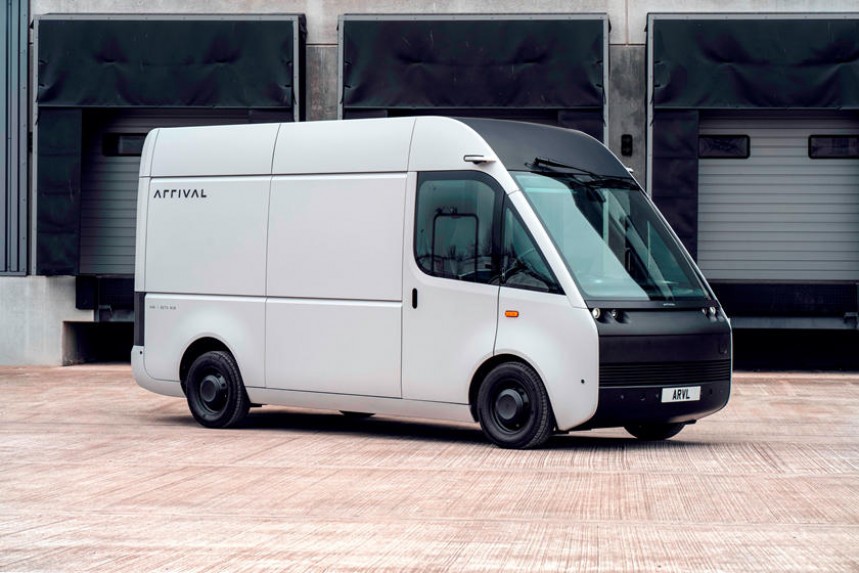Arrival is taking on the major players in the nascent EV delivery van market, and the company says it’s set to being moving packages next year.
Arrival hopes to beat the major automakers to the punch - including Tesla - and they’re also squaring off against higher-profile companies like Rivian, the suddenly troubled Workhorse Group, and other EV van makers with contracts from major shipping companies.
The three top companies will be supplying vehicles to UPS (Arrival), USPS (Workhorse), and Amazon (Rivian), but those three also face competition from players like Ford, GM, and Volvo. They have pledged to be replacing their vehicle lineups with no - or low-emission - models.
Arrival thinks they have a major competitive advantage in the way they build their vans using what they call “rapidly scaleable micro-factories.” The idea is that instead of having a central factory location that's hard to scale, the vehicles are built and shipped from a plant Arrival can create a micro-factory in an area it plans to service more quickly and efficiently.
They call it "the last mile," and it’s the link in the logistic chain between a transportation hub and the customer location, and it’s that niche where Arrival's all-electric prototype delivery van enters the system.
This version of the van for UPS was intended to create a van from the ground up which features “simplicity.”
Delivery vehicles for delivery companies, such as UPS, don't require an enormous range. Such vans need only enough range to cover relatively short daily routes, and their goal was to begin with a vehicle as possible and keeping the payload space at a maximum.
Arrival's vans use an aluminum frame and composite bodywork, which is created with a “proprietary blend of plastics and fiberglass” they can then impregnate with colors to save the time and cost associated with painting processes.
The vans also feature modularity to allow the vehicles to operate on a common platform. There are some nine modules in the Arrival vans including a battery pack - available from 44 kWh to 133 kWh - and additional modules to house various software and hardware packages. The front of the prototype features a standard walk-in design and a foldable passenger jump seat. The vans are capable of hauling a payload of 4,354 pounds (1,975 kg) and the company says the cost for this model should be "a price comparable with fossil fuel vehicles, and with a substantially lower Total Cost of Ownership (TCO)."
The cabin includes a 15.6-inch touchscreen interface operating software to display key information to the drive efficiently. The vans also feature advanced systems such as Emergency Braking, Blind Spot Monitoring, Traffic Sign Recognition, and Lane-Keep Assist.
Just today, Arrival announced an automated driving system (ADS), which has already completed a live demonstration at an operational depot. It marked the first time an Arrival Van maneuvered at a working facility without a human driver to assist.
Arrival developed the autonomous driving functionality for the Arrival Van via their Robopilot project. The company says this technology will ultimately be adapted to all Arrival Vehicles such as the Arrival Bus and the Arrival Car.
“At Arrival, we are building supplementary technologies that will help drivers. Depot maneuvers are the most accident-prone parts of a worker’s shift and with our technology, we hope to introduce greater safety by removing human driving errors happening in confined environments,” says Max Kumskoy, Head of Advanced Driver Assistance and Automated Driving Systems for Arrival. “We are starting with a fixed controlled environment in the depot, where we are truly able to test and validate our technology. We can then understand how it will operate on public roads, in our vehicles, and how it can be implemented worldwide.”
Arrival, a global business founded in 2015 and headquartered in London, UK and Charlotte, North Carolina, USA, has 2,100 global employees located in offices across the United States, Germany, the Netherlands, Israel, Russia, and Luxembourg. The company’s first four microfactories will be located in North Carolina, USA, South Carolina, USA, Bicester, UK and Madrid, Spain.
The three top companies will be supplying vehicles to UPS (Arrival), USPS (Workhorse), and Amazon (Rivian), but those three also face competition from players like Ford, GM, and Volvo. They have pledged to be replacing their vehicle lineups with no - or low-emission - models.
Arrival thinks they have a major competitive advantage in the way they build their vans using what they call “rapidly scaleable micro-factories.” The idea is that instead of having a central factory location that's hard to scale, the vehicles are built and shipped from a plant Arrival can create a micro-factory in an area it plans to service more quickly and efficiently.
This version of the van for UPS was intended to create a van from the ground up which features “simplicity.”
Delivery vehicles for delivery companies, such as UPS, don't require an enormous range. Such vans need only enough range to cover relatively short daily routes, and their goal was to begin with a vehicle as possible and keeping the payload space at a maximum.
Arrival's vans use an aluminum frame and composite bodywork, which is created with a “proprietary blend of plastics and fiberglass” they can then impregnate with colors to save the time and cost associated with painting processes.
The cabin includes a 15.6-inch touchscreen interface operating software to display key information to the drive efficiently. The vans also feature advanced systems such as Emergency Braking, Blind Spot Monitoring, Traffic Sign Recognition, and Lane-Keep Assist.
Just today, Arrival announced an automated driving system (ADS), which has already completed a live demonstration at an operational depot. It marked the first time an Arrival Van maneuvered at a working facility without a human driver to assist.
Arrival developed the autonomous driving functionality for the Arrival Van via their Robopilot project. The company says this technology will ultimately be adapted to all Arrival Vehicles such as the Arrival Bus and the Arrival Car.
Arrival, a global business founded in 2015 and headquartered in London, UK and Charlotte, North Carolina, USA, has 2,100 global employees located in offices across the United States, Germany, the Netherlands, Israel, Russia, and Luxembourg. The company’s first four microfactories will be located in North Carolina, USA, South Carolina, USA, Bicester, UK and Madrid, Spain.










